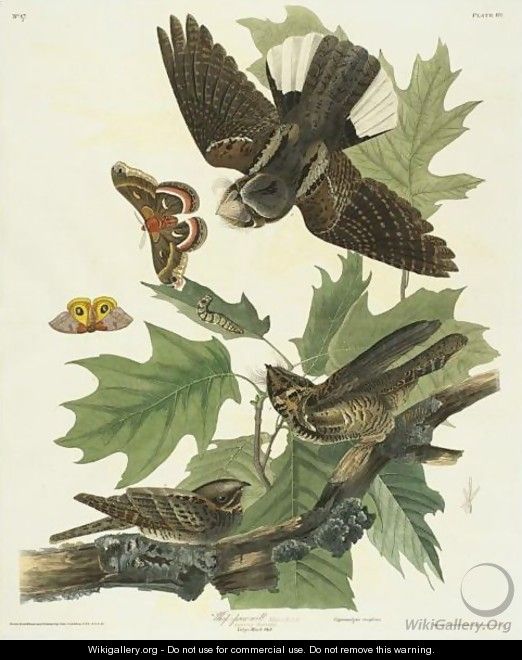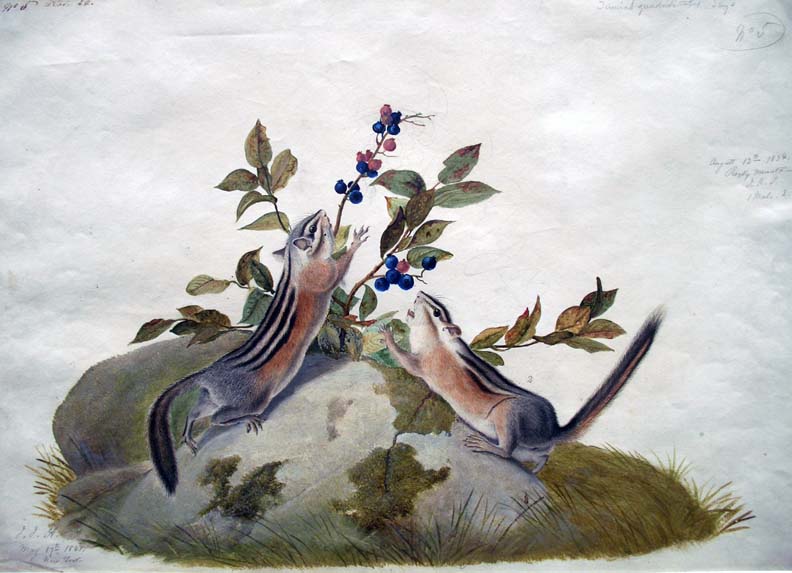This painting of Whippoorwills by John James Audubon, like so many of his paintings, includes habitat clues - plants and in this case insects they eat. Audubon was a both a naturalist and an artist. In portraying the things he saw in nature he was also skillful in putting together a pleasing composition so that the finished work was both informative and attractive.

Our music today by our present composer, Franz Joseph Haydn is Symphony 101, the Clock symphony. I hope you enjoy it. It is fun to watch the conductor. It made me think that one person directs and the rest cooperate each doing their part - reminds me of how families function, and also the body of Christ. If you are wondering why it is called the clock symphony, it is because of the "ticking" rhythm throughout the second movement. There are four parts. If you want only one part, I would recommend part 2 with the clock sounds. Listen to as much of it as you like. Here they are:
Part 1 http://www.youtube.com/watch?v=aXGKC0lzzg8&feature=related
Part 2 http://www.youtube.com/watch?v=QV4LCn9tqUw&feature=related
Part 3 http://www.youtube.com/watch?v=0QeB1CoD7VA&feature=related
Part 4 http://www.youtube.com/watch?v=ntjYElkBkXM&feature=related
William Blake
The Echoing Green
The sun does arise,
And make happy the skies;
The merry bells ring
To welcome the Spring;
The skylark and thrush,
The birds of the bush,
Sing louder around
To the bells' cheerful sound;
While our sports shall be seen
On the echoing green.
And make happy the skies;
The merry bells ring
To welcome the Spring;
The skylark and thrush,
The birds of the bush,
Sing louder around
To the bells' cheerful sound;
While our sports shall be seen
On the echoing green.
Old John, with white hair,
Does laugh away care,
Sitting under the oak,
Among the old folk.
They laugh at our play,
And soon they all say,
'Such, such were the joys
When we all -- girls and boys --
In our youth-time were seen
On the echoing green.'
Does laugh away care,
Sitting under the oak,
Among the old folk.
They laugh at our play,
And soon they all say,
'Such, such were the joys
When we all -- girls and boys --
In our youth-time were seen
On the echoing green.'
Till the little ones, weary,
No more can be merry:
The sun does descend,
And our sports have an end.
Round the laps of their mothers
Many sisters and brothers,
Like birds in their nest,
Are ready for rest,
And sport no more seen
On the darkening green.
No more can be merry:
The sun does descend,
And our sports have an end.
Round the laps of their mothers
Many sisters and brothers,
Like birds in their nest,
Are ready for rest,
And sport no more seen
On the darkening green.



